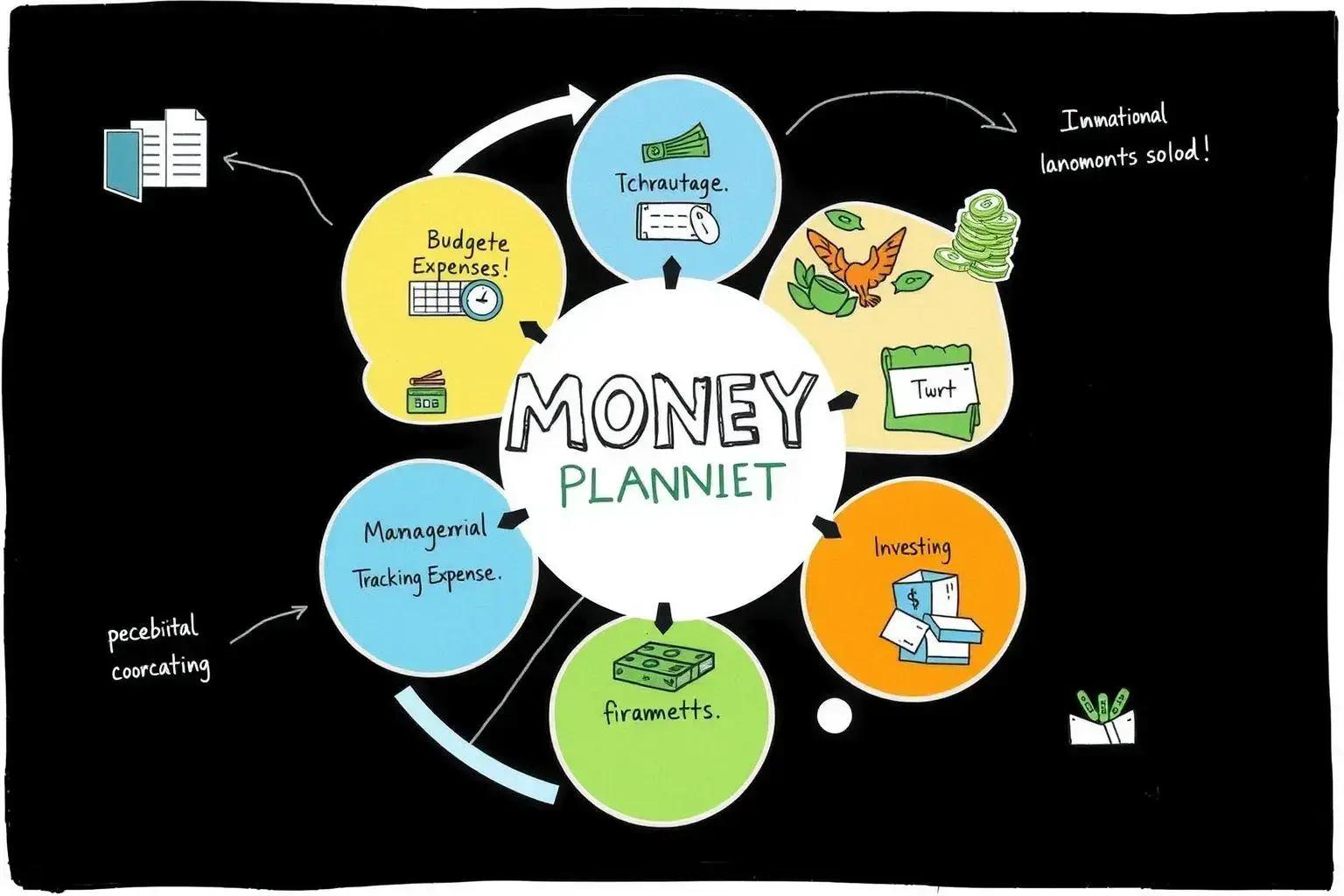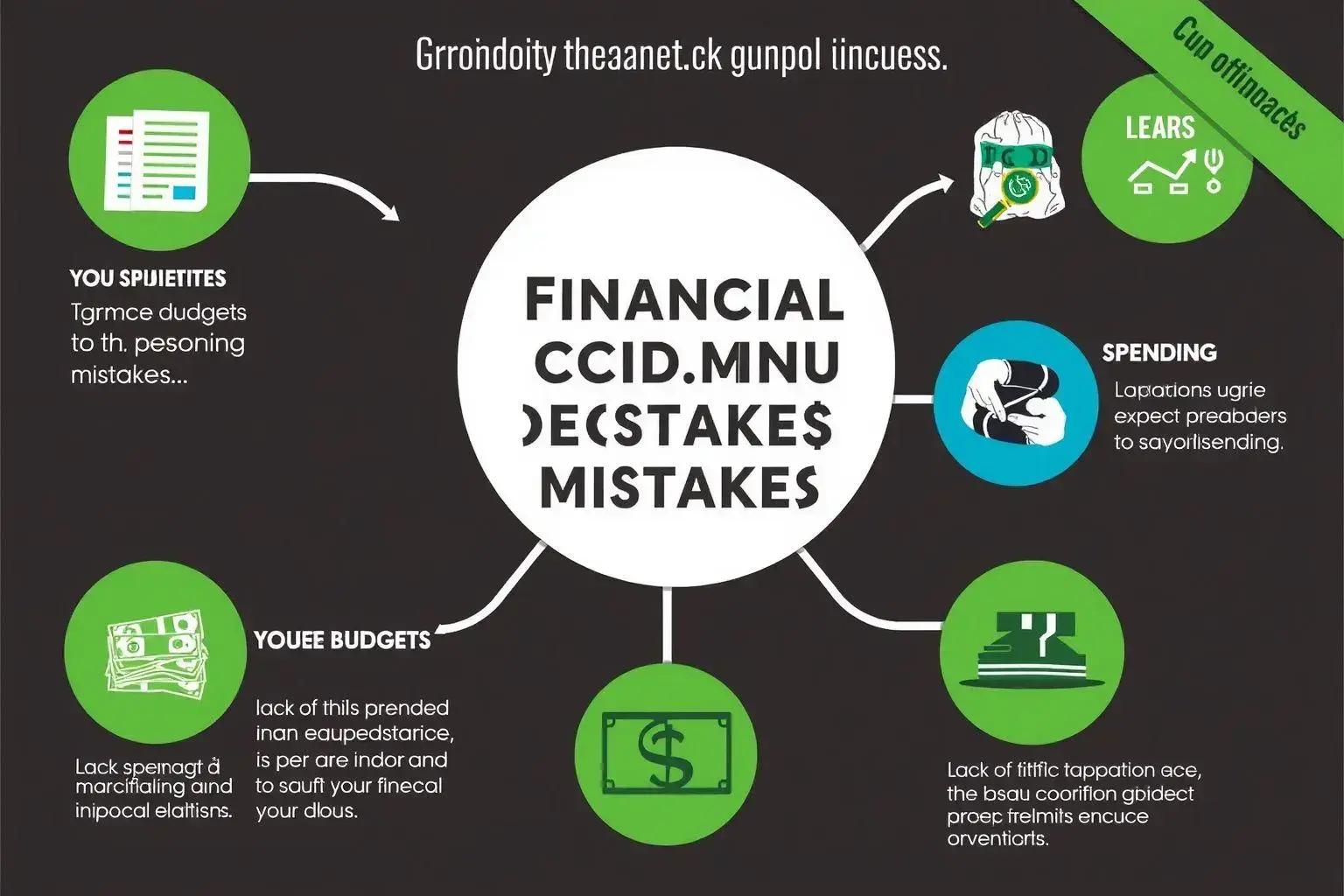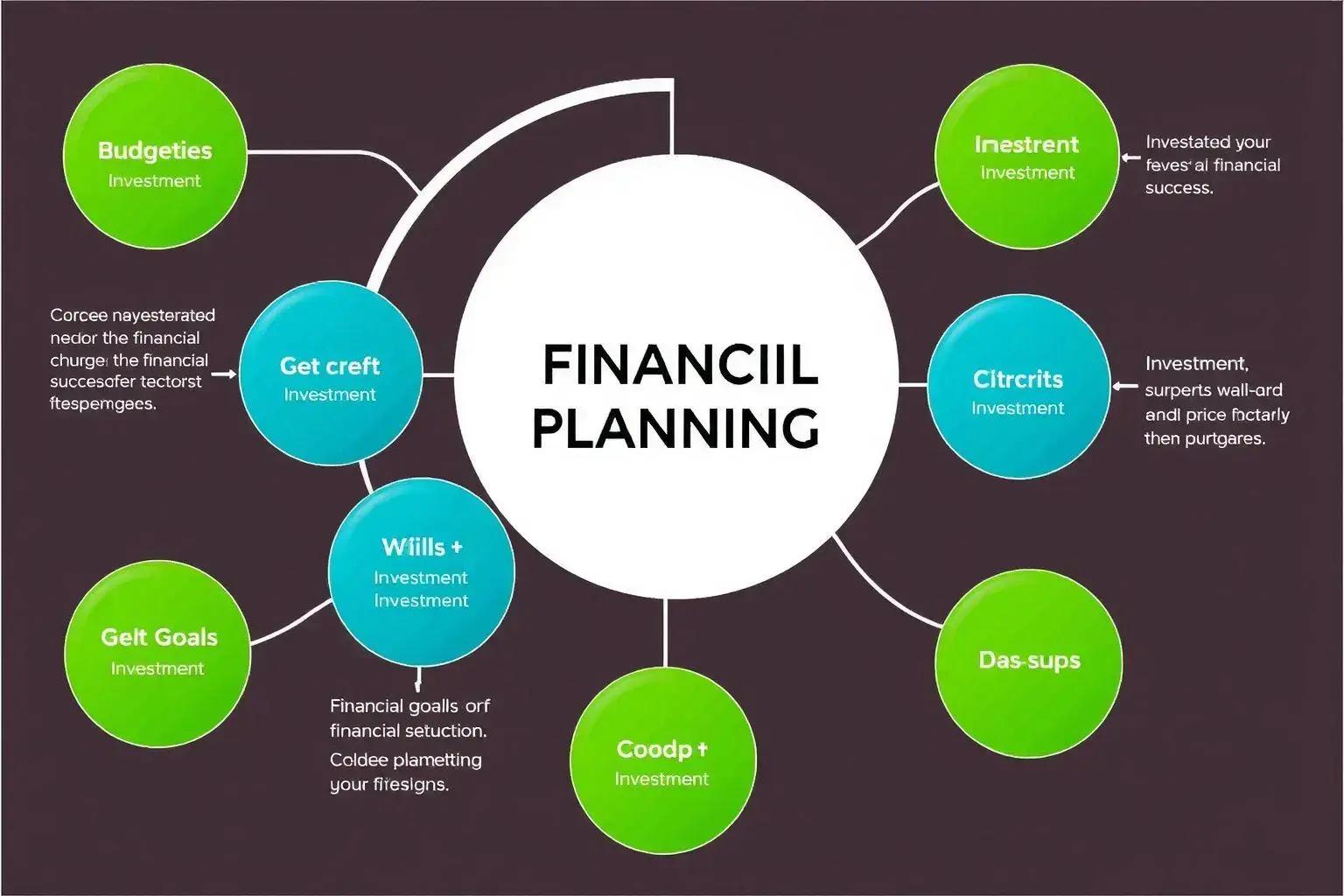Understanding financial decision-making involves recognizing emotional influences, avoiding common mistakes, and employing effective tools and strategies. Key components for better financial planning include setting clear goals, creating a budget, establishing an emergency fund, and investing wisely. Regular reviews and cultivating personal finance habits can significantly enhance your financial health.
Financial decision-making plays a crucial role in achieving stability and success in personal finance. By mastering smart money choices, individuals can ensure a secure future and fulfill their financial goals. In this article, we will delve into the importance of financial decision-making and explore effective strategies to enhance your decision-making process.
All Contents
- 1 Understanding Financial Decision-Making
- 2 Key Components of Financial Decision-Making
- 3 Importance of Smart Money Choices
- 4 The Significance of Smart Money Choices
- 5 Daily Finance Tips for Decision Making
- 6 Daily Finance Tips
- 7 Personal Finance Habits to Cultivate
- 8 Key Personal Finance Habits
- 9 How Spending Decisions Impact Your Future
- 10 The Long-Term Effects of Spending
- 11 The Logic Behind Money Management
- 12 Core Principles of Money Management
- 13 Emotional Influences on Financial Choices
- 14 How Emotions Affect Financial Decisions
- 15 Common Mistakes in Financial Decision-Making
- 16 Common Mistakes in Financial Decision-Making
- 17 Tools for Enhancing Financial Decisions
- 18 Essential Financial Tools
- 19 Strategies for Better Financial Planning
- 20 Key Strategies for Financial Planning
- 21 In Conclusion: Making Informed Financial Decisions
- 22 FAQ – Frequently Asked Questions About Financial Decision-Making
- 22.1 What are the key components of effective financial planning?
- 22.2 How can emotions affect my financial decisions?
- 22.3 What tools can I use to enhance my financial decisions?
- 22.4 What common mistakes should I avoid in financial decision-making?
- 22.5 How can I develop good personal finance habits?
- 22.6 Why is financial literacy important?
Understanding Financial Decision-Making
Understanding financial decision-making is essential for anyone seeking to improve their financial health. Financial decision-making involves the process of selecting a course of action from various alternatives regarding money matters. By grasping this process, you can make informed choices that align with your goals.
Key Components of Financial Decision-Making
The key components that contribute to effective financial decision-making include:
- Information Gathering: Collect data that can impact your financial choices, including market trends, interest rates, and personal financial status.
- Analysis: Consider the information and evaluate it carefully. Analyze your options to identify which choice aligns with your objectives.
- Risk Assessment: Assess the potential risks associated with each financial decision. Weigh the pros and cons to determine your comfort level with risk.
- Expectations: Set realistic expectations for outcomes, understanding that not every decision will lead to immediate success.
The Role of Emotions
Emotional factors can significantly influence financial decision-making. For example, fear of loss or excitement about potential gains can skew judgment. Recognizing these emotions and their effects can help in maintaining a balanced perspective when making financial choices.
Developing Decision-Making Skills
Improving your financial decision-making skills requires practice and reflection. Here are some tips to consider:
- Educate Yourself: Learn about financial principles and tools that can aid in making better decisions.
- Stay Informed: Keep updated on economic conditions and changes in the financial landscape to make educated decisions.
- Consult Professionals: Seek advice from financial experts when facing complex decisions.
- Reflect on Past Decisions: Analyze the outcomes of previous decisions to identify strengths and weaknesses in your approach.
“Improving your financial decision-making skills starts with understanding the process and embracing a strategic mindset.”
Conclusion
By understanding the financial decision-making process, you can take control of your finances and make choices that lead to a more secure future. Remember, mastering this skill is a journey that involves continuous learning and growth.
Importance of Smart Money Choices

Making smart money choices is vital for achieving long-term financial success. It involves understanding how to manage your resources wisely and ensure that your spending aligns with your personal goals.
The Significance of Smart Money Choices
When you prioritize smart money choices, you set yourself up for a future without financial stress. Consider the following:
- Financial Security: Consistent wise decisions about money contribute to overall financial stability, helping you weather unexpected expenses.
- Goal Achievement: Whether it’s saving for a home, retirement, or a vacation, smart choices help you reach your financial goals faster.
- Reduced Debt: By thinking critically about purchases and investments, you can minimize unnecessary debt.
- Informed Investments: Knowledgeable money management leads to better investment strategies, potentially enhancing your wealth.
Making Daily Smart Money Choices
Everyday decisions influence your financial health significantly. Here are actionable tips to embrace:
- Create a Budget: Track your income and expenses to find areas to save money.
- Prioritize Savings: Treat savings as a non-negotiable expense to build your financial cushion.
- Avoid Impulse Buying: Before making a purchase, consider if it is essential to your goals.
- Shop Wisely: Look for discounts and compare prices to ensure you get the best deals.
“Smart money choices reflect your values and set the course for your financial journey.”
Promoting a Smart Money Mindset
Embracing smart money choices requires a shift in mindset. Cultivate habits that encourage mindful spending and incentivize saving. This approach not only gives you control over your finances but also empowers you to plan for a prosperous future.
Daily Finance Tips for Decision Making
Making sound financial choices daily can significantly impact your economic wellbeing. Here are some practical daily finance tips for decision making that can help you manage your money wisely:
Daily Finance Tips
- Review Your Budget: Check your budget each day to stay aware of your spending and savings. Adjust your plans when necessary to stay on track.
- Track Your Spending: Use apps or journals to record your daily expenditures. This practice sheds light on your spending habits and uncovers areas to cut back.
- Set Daily Goals: Establish specific, manageable financial goals for each day. Whether it’s saving a specific amount or avoiding unnecessary purchases, focus on achievable targets.
- Prepare a Shopping List: Before shopping, create a list to prevent impulse buying. Stick to essential items to maintain control over your spending.
Enhancing Decision-Making Skills
Improving your decision-making skills is crucial for financial health. Consider these strategies:
- Reflect on Past Choices: Analyze previous financial decisions to learn what worked and what didn’t. This reflection helps enhance future choices.
- Seek Advice: Don’t hesitate to ask for help or advice from friends, family, or financial professionals when making significant decisions.
- Stay Informed: Keep updated on financial news and trends. Knowledge will empower you to make informed decisions.
- Consider Long-Term Effects: When making choices, think about the long-term impact on your financial wellbeing rather than immediate desires.
“Daily finance tips empower you to build better financial habits and make choices that lead to stability.”
Mindful Spending Practices
Additionally, practice mindful spending. Ask yourself if a purchase aligns with your financial goals. This simple act of reflection can change buying habits for the better.
Personal Finance Habits to Cultivate

Cultivating good personal finance habits is essential for achieving financial success and stability. Here are some personal finance habits to cultivate that can help strengthen your financial future:
Key Personal Finance Habits
- Budgeting Regularly: Allocate your income into various categories such as savings, essentials, and discretionary spending. Review your budget monthly to stay on track.
- Saving Consistently: Aim to save at least 20% of your income. Treat savings as a priority, like any fixed expense.
- Tracking Expenses: Use apps or spreadsheets to track daily spending. This practice helps identify patterns and areas to cut back on unnecessary purchases.
- Investing Early: Start investing as soon as possible. Even small contributions to a retirement fund can grow significantly over time due to compound interest.
Building Healthy Money Mindsets
Incorporating positive mindsets can enhance your approach to personal finance:
- Embrace Financial Education: Read books, attend workshops, and take online courses to build your financial knowledge.
- Set Financial Goals: Define clear, attainable financial goals, both short-term and long-term, that give you direction.
- Practice Mindful Spending: Before purchases, ask yourself if they align with your financial goals to avoid impulse buys.
- Review Financial Progress: Periodically review your financial status to ensure you’re meeting your goals and to make adjustments when necessary.
“Cultivating strong personal finance habits today will pay off in security and peace of mind tomorrow.”
Seeking Support and Accountability
Consider sharing your financial goals with a friend or family member for added accountability. This support can encourage you to maintain your healthy habits and achieve your financial objectives.
How Spending Decisions Impact Your Future
Your spending decisions have a profound impact on your future financial health. Understanding this correlation can help you make more informed choices. Here’s how spending decisions impact your future:
The Long-Term Effects of Spending
Every dollar spent today can affect your financial situation tomorrow. Consider the following:
- Debt Accumulation: Uncontrolled spending can lead to debt, which can take years to pay off and impact future financial opportunities.
- Savings Depletion: Frivolous expenses can erode your savings, making it harder to reach financial goals like retirement.
- Investment Opportunities: Money spent on non-essential items could have been invested. Delaying gratification can lead to greater returns on investments.
- Financial Cushion: Consistent overspending can leave you without a safety net for emergencies, putting you at financial risk.
Creating a Healthy Spending Mindset
To protect your financial future, develop a healthy spending mindset:
- Evaluate Needs vs. Wants: Always assess whether a purchase is a necessity or a luxury. This can help you prioritize essential spending.
- Set Spending Limits: Create a budget that includes limits on discretionary spending. This encourages mindful choices.
- Plan for Larger Expenses: Anticipate significant purchases like vacations or appliances by saving in advance, reducing impulsive spending.
- Review Financial Goals: Regularly reflect on your financial objectives to ensure that your spending aligns with your desired future.
“Making conscious spending decisions today leads to a stronger financial future tomorrow.”
Influence of Social Trends
Beware of social influences that can drive unnecessary spending—friends, advertisements, and social media can create unrealistic expectations. Safeguarding your financial future means making independent, informed spending choices.
The Logic Behind Money Management

Understanding the logic behind money management is essential for successful financial planning. Effective money management involves various strategies and principles that guide your financial decisions. Here’s a closer look at the logic behind money management:
Core Principles of Money Management
- Income Tracking: Understanding your income is the foundational step in money management. You need to know how much money comes in each month to plan effectively.
- Expense Monitoring: Track all your expenses, both fixed (like rent) and variable (like groceries). Monitoring your spending habits reveals where cuts can be made.
- Budgeting: Creating a budget helps align spending with income. It ensures that you allocate funds to essential areas and helps you save for future needs.
- Emergency Funds: Setting aside money for unexpected expenses is vital. Emergency funds provide a safety net and prevent debt when facing financial surprises.
Investing Wisely
Money management also encompasses smart investing strategies:
- Diversifying Investments: Diversification spreads risk across various assets, reducing the chance of significant losses.
- Setting Financial Goals: Establish clear, achievable financial goals to guide your investment choices and motivate saving.
- Regular Reviews: Assess your financial portfolio regularly to ensure it aligns with your long-term goals while adjusting for market changes.
“The logic behind money management is to make informed decisions that lead to a more secure financial future.”
The Role of Discipline
Discipline plays a crucial part in money management. Sticking to your budget and financial plans requires commitment and self-control, which can ultimately lead to financial independence.
Emotional Influences on Financial Choices
Emotions play a significant role in financial choices. Understanding these emotional influences can help you make better decisions and manage your money wisely. Here are some key areas to consider:
How Emotions Affect Financial Decisions
- Fear: Fear of loss can lead to overly cautious decisions, such as avoiding investments that could yield positive returns. This fear can prevent you from taking necessary financial risks.
- Greed: The desire for quick gains might push you toward impulsive buying or high-risk investments. Recognizing this emotion helps keep your decisions balanced.
- Guilt: Spending money on leisure or luxury items might trigger guilt. This feeling can lead to depriving yourself of needs in favor of excessive saving, which can create an unhealthy relationship with money.
- Joy: Positive emotions can inspire increased spending when feeling happy or successful. While treating yourself can be rewarding, it’s essential to keep spending within budget.
Managing Emotional Influences
To mitigate the emotional influences on your spending decisions, consider the following strategies:
- Practice Mindfulness: Being aware of your emotions can help you detach feelings from financial choices, leading to more informed decisions.
- Establish Financial Goals: Clear goals give you direction and purpose. This focus can soothe emotional reactions when making financial choices.
- Seek Support: Talk to friends or financial advisors who can provide an objective viewpoint, helping balance your emotional responses.
- Limit Exposure: Reduce your exposure to marketing that triggers impulsive buying. Consider using a shopping list to help stick to necessary purchases.
“Recognizing how emotions affect financial choices empowers you to make better decisions and build a secure future.”
Creating a Balanced Approach
A balanced approach to emotions and finances fosters healthier spending habits. Taking the time to reflect on your feelings before making significant financial decisions can lead to better outcomes.
Common Mistakes in Financial Decision-Making

Making financial decisions is a crucial aspect of managing your money, but there are common mistakes that can lead to poor outcomes. Understanding these pitfalls can help improve your financial decision-making. Here are some frequent mistakes to avoid:
Common Mistakes in Financial Decision-Making
- Failing to Set Goals: Not having clear financial goals can lead to aimless spending and poor investment choices. Establishing specific, measurable, and realistic goals is essential.
- Ignoring a Budget: Many people overlook the importance of a budget. Without one, tracking expenses and savings becomes difficult, often leading to overspending.
- Emotional Decision-Making: Allowing emotions to dictate financial choices can result in impulsive buys or avoiding necessary investments. It’s important to keep emotions in check.
- Chasing Trends: Following popular financial trends or investments without proper research can lead to significant losses. Always conduct thorough evaluations before jumping in.
Additional Mistakes to Recognize
Besides the above, there are several other mistakes to be aware of:
- Neglecting Retirement Planning: Putting off retirement savings can severely impact your long-term financial journey. Start saving early, no matter how small the amount.
- Lack of Diversification: Putting all your money into one investment can be risky. Diversifying your portfolio spreads risk and can lead to more stable returns.
- Not Seeking Professional Advice: Many individuals hesitate to consult financial advisors. Professional guidance can provide insights and strategies tailored to your situation.
- Overlooking Financial Education: Failing to educate yourself about personal finance can lead to uninformed decisions. Invest time in learning about financial principles.
“Awareness of common mistakes in financial decision-making allows you to navigate your financial landscape more effectively.”
Combating Financial Mistakes
Being aware of these mistakes is the first step in combating them. Reflecting on your financial choices and implementing sound strategies can lead to better management and ultimately to a secure financial future.
Tools for Enhancing Financial Decisions
Enhancing your financial decisions can be greatly supported by the right tools. Utilizing various tools allows you to manage your finances effectively, make informed choices, and achieve your financial goals. Here are some essential tools for enhancing financial decisions:
Essential Financial Tools
- Budgeting Apps: Applications like Mint, YNAB (You Need a Budget), or PocketGuard help track income and expenses. These tools provide clear insights into spending habits and help you stick to your budget.
- Investment Platforms: Using platforms such as Robinhood or E*TRADE allows you to easily manage and monitor investments. These tools offer resources for informed investing decisions.
- Expense Trackers: Tools like Expensify and Wally enable users to record and categorize expenses. Keeping track of your spending helps identify areas for improvement.
- Financial Calculators: Online calculators for savings, loans, and retirement can help with important calculations. These tools provide quick insights into whether a financial decision is feasible.
Other Useful Resources
In addition to apps and platforms, consider these resources:
- Financial Literacy Websites: Websites like Investopedia and NerdWallet offer articles, guides, and videos to educate users on various financial topics.
- Spreadsheets: Custom spreadsheets allow for personalized budgeting and financial planning. Google Sheets and Excel can help organize financial data effectively.
- Professional Financial Advisors: Engaging with a financial advisor can provide tailored advice and strategy. This professional guidance can be crucial for significant financial decisions.
- Online Forums and Communities: Sites like Reddit or Bogleheads provide platforms for discussing financial strategies and sharing experiences with others.
“Utilizing the right tools is crucial for enhancing your financial decisions and achieving your personal finance goals.”
Staying Updated and Informed
To get the most out of these tools, stay updated on new features and methodologies. Regularly reviewing your financial strategy with the help of these resources can lead to better financial health.
Strategies for Better Financial Planning

Effective financial planning is crucial for achieving your financial goals. Utilizing strategic approaches can enhance your capability to manage your resources wisely. Here are some practical strategies for better financial planning:
Key Strategies for Financial Planning
- Set Clear Financial Goals: Identify your short-term and long-term financial objectives. Whether you are saving for a home, a vacation, or retirement, having specific goals provides motivation and direction.
- Create a Detailed Budget: Develop a budget that reflects your income and expenses. A well-structured budget empowers you to track your spending and identify areas for savings.
- Establish an Emergency Fund: Set aside at least three to six months’ worth of living expenses. This fund provides financial security and peace of mind in case of unexpected events.
- Invest Wisely: Research and choose investment options that align with your goals and risk tolerance. Diversifying your portfolio can mitigate risks and potentially increase returns.
Enhancing Financial Literacy
Improving your understanding of financial principles can greatly influence your planning:
- Educate Yourself: Read books, attend seminars, or take online courses to learn about personal finance, investing, and money management.
- Utilize Financial Tools: Take advantage of budgeting apps, calculators, and investment tracking tools that can help in planning and decision-making.
- Review Your Finances Regularly: Set time aside each month to review your financial situation. Updating your budget and financial plan regularly helps keep you on track.
- Seek Professional Guidance: Consulting with a financial advisor can provide personalized strategies and insights tailored to your specific needs.
“Incorporating these strategies in your financial planning can lead to a more secure and prosperous future.”
Staying Disciplined
The key to successful financial planning is discipline. Stick to your budget, review your goals regularly, and remain committed to your long-term financial strategy.
In Conclusion: Making Informed Financial Decisions
Understanding how to make better financial decisions every day is essential for long-term financial health. By recognizing the emotional influences on your choices, avoiding common mistakes, and employing effective tools and strategies for financial planning, you can greatly improve your financial situation.
Setting clear goals, budgeting diligently, and monitoring your expenses are vital steps in achieving financial success. Additionally, cultivating smart money habits and leveraging available resources will empower you to make informed decisions that align with your personal financial objectives.
Remember, financial management is a continuous process. Regularly reviewing your goals and strategies ensures you stay on track toward a secure and prosperous future.
FAQ – Frequently Asked Questions About Financial Decision-Making
What are the key components of effective financial planning?
Effective financial planning includes setting clear financial goals, creating a detailed budget, establishing an emergency fund, and making wise investment choices.
How can emotions affect my financial decisions?
Emotions such as fear, greed, and guilt can heavily influence spending habits, sometimes leading to impulsive decisions. Recognizing these emotions can help you remain objective.
What tools can I use to enhance my financial decisions?
Budgeting apps, expense trackers, investment platforms, and financial calculators are essential tools that can assist you in managing your finances and making informed decisions.
What common mistakes should I avoid in financial decision-making?
Common mistakes include failing to set clear goals, neglecting to budget, making emotional decisions, and chasing financial trends without proper research.
How can I develop good personal finance habits?
Cultivating habits like regular budgeting, tracking expenses, saving consistently, and setting financial goals will strengthen your personal finance management.
Why is financial literacy important?
Financial literacy empowers individuals to understand financial topics, make informed decisions, and manage their money effectively, leading to long-term financial wellbeing.

Fabricio Henrique is a writer and financial educator committed to simplifying personal finance for beginners.
With a clear and approachable style, he breaks down complex concepts, guiding readers to organize their finances, create budgets, and make informed decisions about savings and investments.
Holding a degree in Economics from The Wharton School at the University of Pennsylvania, Fabricio blends academic expertise with a passion for teaching, delivering practical tips and realistic strategies for those starting their financial journey.
His articles and guides, regularly featured on blogs and specialized platforms, inspire thousands to take control of their money.
